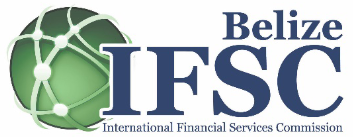IFSC (International Financial Services Commission)
Being one of the first regulators of the offshore jurisdictions that actually tried to regulate anything, the International Financial Services Commission of Belize is now regarded the top tier of low-tier regulators in Forex trading.
 The IFSC of Belize, a Central American country, was established in 1999 with a main objective of regulating the
The IFSC of Belize, a Central American country, was established in 1999 with a main objective of regulating the
Role of IFSC
- Promote Belize as a prime international financial center.
- Maintain the reputation of Belize as a responsible offshore financial center.
- Supervise and regulate firms involved providing financial services. However, the supervision is not as rigorous as in developed countries. The IFSC promotes
self-regulation . - Assist the government in formulating policies, as and when necessary, to regulate the firms effectively.
- Collecting and providing timely information to the public.
Who should register?
An individual or entity involved in any of the
- Services for international business corporations (IBC's).
- Trustee services.
- International asset protection and management.
- Securities trading services (so-called Category F). Most Forex brokers use this license, however, there is a less popular separate type of license for FX brokers — Category J.
- International money lending.
- Brokerage, consultancy, and advisory.
- International safe custody services.
- Foreign exchange trading services (so-called Category J). Nowadays, it is almost never used as the 'securities trading services' license cover what most Forex brokers provide.
- Money transmission, brokering, and exchange services.
- Payment processing.
- International accounting.
Registration and compliance requirements
- The application fee for a foreign exchange trading business license is $1,000. The annual license fee is $25,000. If a Forex broker offers derivative instruments in commodities or stocks (CFDs, futures, options, etc.), then it will cost another $25,000 as an annual license fee because a securities trading license is required.
- The
non-refundable application fee should accompany every application. The annual license fee is payable upon the grant of license by the Commission. - A Forex broker should have a minimum
paid-up capital of $500,000. The same requirement suffices fornon-FX derivative trading. - The currency of Belize should not be used to conduct the Forex brokerage business.
- The Forex broker should send monthly statement clearly indicating the amount due to the customer. The broker should also include a statement saying that the payment will be made on demand without delay.
- Should compulsorily keep the customers' funds segregated.
- Should not encourage a customer to increase trading volumes with an ambition to earn more commission.
- There should not be any unauthorized use of customers' funds.
- The Forex broker should disclose the trading commission size and other charges beforehand to a customer. Furthermore, all customers should be treated equally.
- If a client makes a written complaint to the Forex broker alleging misappropriation of funds or any other kind of fraud, then the Forex broker should inform those details to the IFSC within five days of receipt of the letter.
- Any civil proceedings exceeding $25,000 against the Forex broker, in Belize or abroad, should be immediately informed about.
- A Forex broker should sign a margin agreement with a customer before allowing trade executions.
- The Forex broker will have a right to conduct business only in the OTC market.
- By the 10th day of every month, a Forex brokers should compulsorily send the details regarding the
paid-up and unimpaired capital. Additionally, the Forex broker should inform the number, volume, and value of all the transactions executed in the previous month. - In the event of bankruptcy, the Forex broker should immediately inform the IFSC. The appointment of a trustee, admission to insolvency, or prolonged inability to maintain the net capital as per the licensing agreement is considered as bankruptcy.
- The Forex broker should not enter into any kind of mergers without permission from the IFSC. No changes in the Memorandum of Articles of Association should be made. The Forex broker is not allowed to implement any change in address or transfer a portion or the whole of the liabilities to any other entity.
- Residents of Belize are not allowed to become customers to the Forex brokerage trading services.
- Cash deposits of $10,000 or above should be properly checked by the Forex broker for money laundering related crimes.
- The Forex broker should provide IFSC with a detailed operating manual of the business. No new branches should be established without the IFSC’s approval.
- There will be a compulsory annual meeting with the IFSC. Previous year’s performance and future prospects would be discussed.
Powers at IFSC’s disposal
- Issue warnings. In August 2021, the IFSC warned about Super Auto Binary Trade, a scam website that falsely claimed to be regulated by the IFSC.
- Revoke a license. In December 2017, the IFSC revoked the license for trading in securities of FM Trading Ltd. citing "good and proper cause".
- Suspend a license. In May 2019, the IFSC suspended the securities trading license of Oasis Global FX citing the company's failure to respond timely to the commission's inquiry.
- Impose a fine.
- Recommend applications for court orders.
- Recommend criminal prosecutions.
Conclusion
As you can see, although there are clearly some standards that IFSC tries to uphold for Forex/CFD brokers operating out of Belize, its obvious lack of enforcement actions may signal that it rarely exercises its powers and that retail customer protection is still pretty low at IFSC-regulated companies.
If you want to share your opinion, observations, conclusions, or to ask a question regarding the International Financial Services Commission of Belize (IFSC), feel free to start a discussion on our Forex forum.
If you want to get news of the most recent updates to our guides or anything else related to Forex trading, you can subscribe to our monthly newsletter.